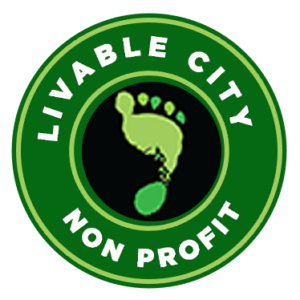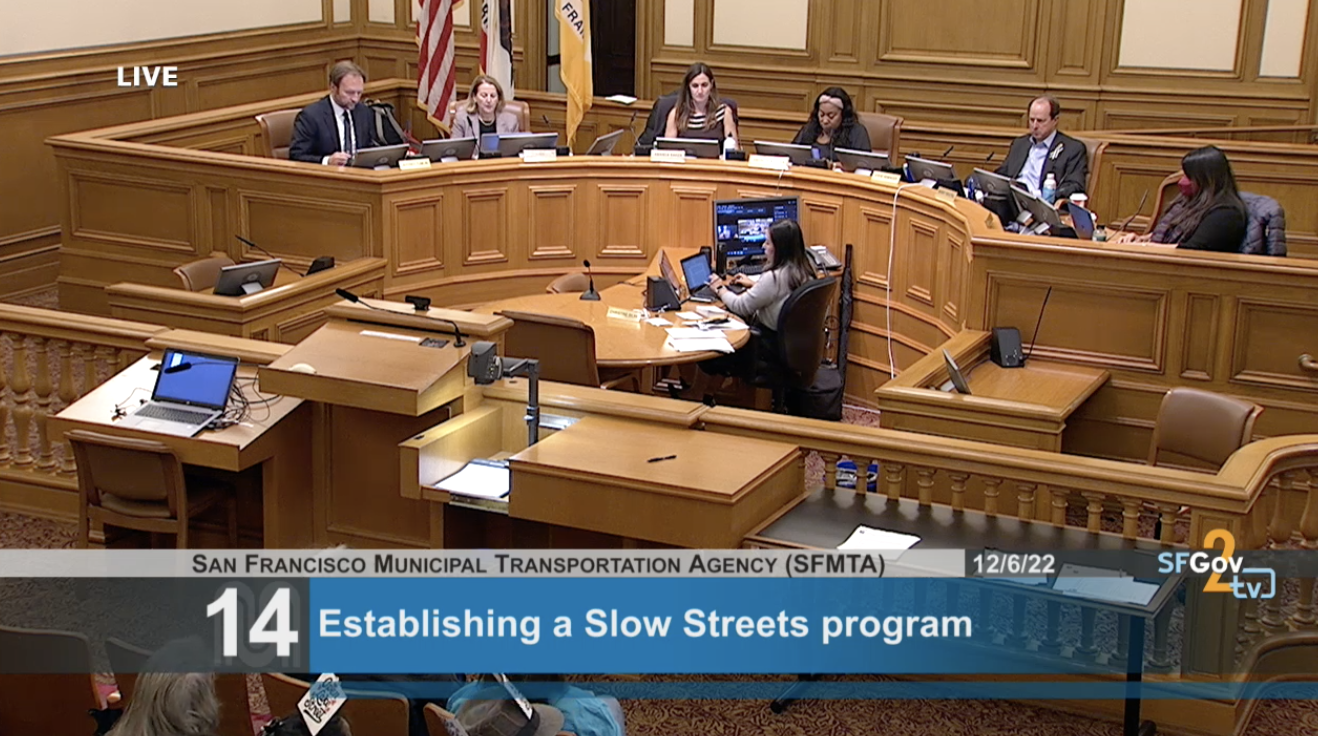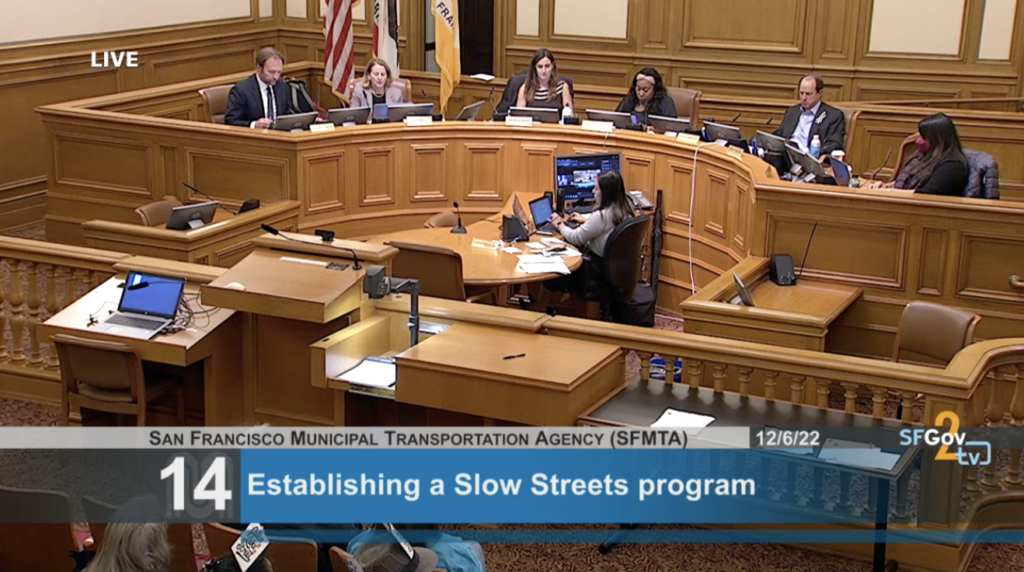
2022 is nearly behind us. The lingering pandemic, political rancor and scandal, and economic uncertainty dominated the local news. Despite all the tumult and uncertainty, Livable City worked hard to help San Francisco take some important steps towards a more livable, just, and sustainable San Francisco. Join us in reflecting on and celebrating what we accomplished in the year nearly past – and how to build on these accomplishments in the year to come.
Complete streets and public transit
This year over a dozen people-oriented streets, created as emergency pandemic measures, were made permanent. Voters approved measures to fund transportation and create complete streets. Public transit ridership and service continued to recover, but transit will soon face a ‘fiscal cliff’ as costs rise, the local economy cools, and federal funds dry up.
- JFK Promenade. The car-free JFK Promenade is now permanent, after voters overwhelmingly approved Prop J and rejected Prop I in November.
- Great Highway. In December the Board of Supervisors extended car-free Fridays, Saturdays, and Sundays on Great Highway through 2025.
Slow Streets. In December the SFMTA Board made permanent most of the Slow Streets created during the pandemic, and approved two additional slow streets. The board also adopted strong standards for traffic speed and safety, and launched a program to equitably expand and connect the slow streets across the City. - Prop L. Voters approved an extension of existing sales tax for transportation to fund essential public transit, streets, and sustainable transportation projects and programs for decades to come.
Prop B. Voters overwhelmingly approved better streets governance by keeping street design and construction together with street maintenance and cleaning, under the oversight of a reformed Public Works Commission. - Transit Justice Coalition. Led by our sister organization the SF Transit Riders, we’re reviving the Transit Justice Coalition, a broad-based coalition working together to restore and improve transit service and stabilize transit funding.
- Better transit on Geary. One year after completion, the Geary Rapid Project has made life easier for transit riders, reducing travel time by up to 18% and improving reliability by 37%. The project also improved safety and accessibility on one of the City’s most-used transit lines.
Open streets
The pandemic underscored the importance of outdoor public spaces for our mental and physical health, connecting with neighbors and friends, and for the cultural and economic vitality of neighborhoods. Livable City was at the center of reclaiming our public spaces. In 2022 Livable City:
- Organized and co-hosted San Francisco’s second annual Phoenix Day on October 16, with block parties and family fun hubs across the City.
- Re-launched Sunday Streets after a two-year pandemic hiatus, with six scheduled events in neighborhoods around the City.
- Ran the Neighborfest disaster-preparedness block party program.
- Activated Treat Plaza, the Mission’s newest outdoor public space.
- Supported free outdoor community events in the Bayview, Chinatown, Western Addition with hands-on and technical assistance.
Livable neighborhoods
We San Franciscans love our neighborhoods. We also fear for them. Decent housing is out of reach for more and more of us. Beloved neighborhood-serving small businesses, community institutions, and third places have been battered by the pandemic and rising costs.
The Planning Department worked all year to update our General Plan Housing Element, which will head to the Board of Supervisors early next year. The state mandated that the new element permit over 82,000 new housing units to be built within the decade, with over half affordable to households who can’t afford current market-rate housing. This year the state also started scrutinizing San Francisco’s complicated development approval process, which can add considerable delay, risk, and uncertainty to building and renovating buildings in San Francisco.
San Francisco has an uneven record of implementing its own General Plan policies. We’re working to make the Housing Element a comprehensive and action-oriented plan with legislative and policy changes and programs, along with metrics and evidence-based standards which will allow us to track genuine progress.Livable City engaged the update process, proposing and advocating for dozens of specific reforms to:
- ease construction of desirable housing
- better connect our housing policies to our health, equity, climate and sustainability, and livability goals.
- stabilize existing residents and community-serving small businesses and institutions
We also shouldn’t wait for the housing element to be completed to make overdue changes. Props D and E, competing housing measures on the November ballot, got a lot of attention, but both were rejected by voters. Livable City’s strategy of championing effective reforms through the legislative process yielded some significant successes in 2022.
- Fourplex ordinance. This ordinance, approved in October, permits buildings of four to six units on all residentially-zoned lots in the city. It’s the boldest reform of residential zoning since exclusionary zoning was enacted decades ago.
- Converting automotive uses to housing. This ordinance removes barriers to building housing on land occupied by automotive uses, like service stations, car washes, parking lots, etc. Developing this sites allows for new housing without displacing existing residents or storefront businesses, make neighborhoods safer and more walkable, and moves us closer to our sustainable transportation goals.
- Arts, entertainment, and community institutions in SoMa. LC helped author a zoning amendment to permit arts, culture spaces, entertainment, and community facilities to grow and thrive in SoMa. The ordinance was recommended by the Planning Commission in November and will be heard by the Board of Supervisors in the new year.

